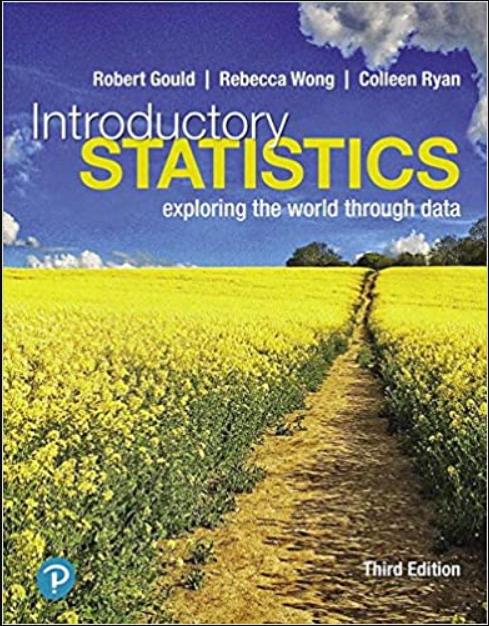According to the National Institute of Mental Health, Social Anxiety Disorder (SAD) is a mental health disorder
Question:
According to the National Institute of Mental Health, Social Anxiety Disorder (SAD) is a mental health disorder that affects up to 7% of the population of the United States. Because many SAD patients experience inadequate symptom relief with available treatments, researchers in this study investigated the use of ketamine to treat SAD patients (Taylor et al. 2018). Read the following excerpts from the study abstract and evaluate the study using the given questions.
Methods: We conducted a double-blind, randomized, placebo-controlled crossover trial in 18 adults with Social Anxiety Disorder and compared the effects between intravenous ketamine and placebo on social phobia symptoms. Ketamine and placebo infusions were administered in a random order with a 28-day washout period between infusions. Ratings of anxiety were assessed 3-hours post-infusion and followed for 14 days. Outcomes were blinded ratings on the Liebowitz Social Anxiety Scale (LSAS) and self-reported anxiety on a visual analog scale (VAS-Anxiety).
Results: We found ketamine resulted in a significantly greater reduction in anxiety relative to placebo on the LSAS (p = 0.01) but not the VAS-Anxiety (p = 0.95). Participants were significantly more likely to exhibit a treatment response after ketamine infusion relative to placebo in the first 2 weeks following infusion measured on the LSAS (33.33% response ketamine vs 0% response placebo, p = 0.025) and VAS (88.89% response ketamine vs 52.94% response placebo, p = 0.034). Conclusion: This trial provides initial evidence that ketamine may be effective in reducing anxiety.
Evaluate the study based on the extracts from the study abstracts by answering the following questions:
a. What is the research question that the investigators are trying the answer?
b. What is their answer to the research question?
c. What were the methods they used to collect data?
d. Is the conclusion appropriate for the methods used to collect data?
e. To what population do the conclusions apply?
f. Have the results been replicated (reproduced) in other articles?
Step by Step Answer:

Introductory Statistics Exploring The World Through Data
ISBN: 9780135163146
3rd Edition
Authors: Robert Gould, Rebecca Wong, Colleen N. Ryan





